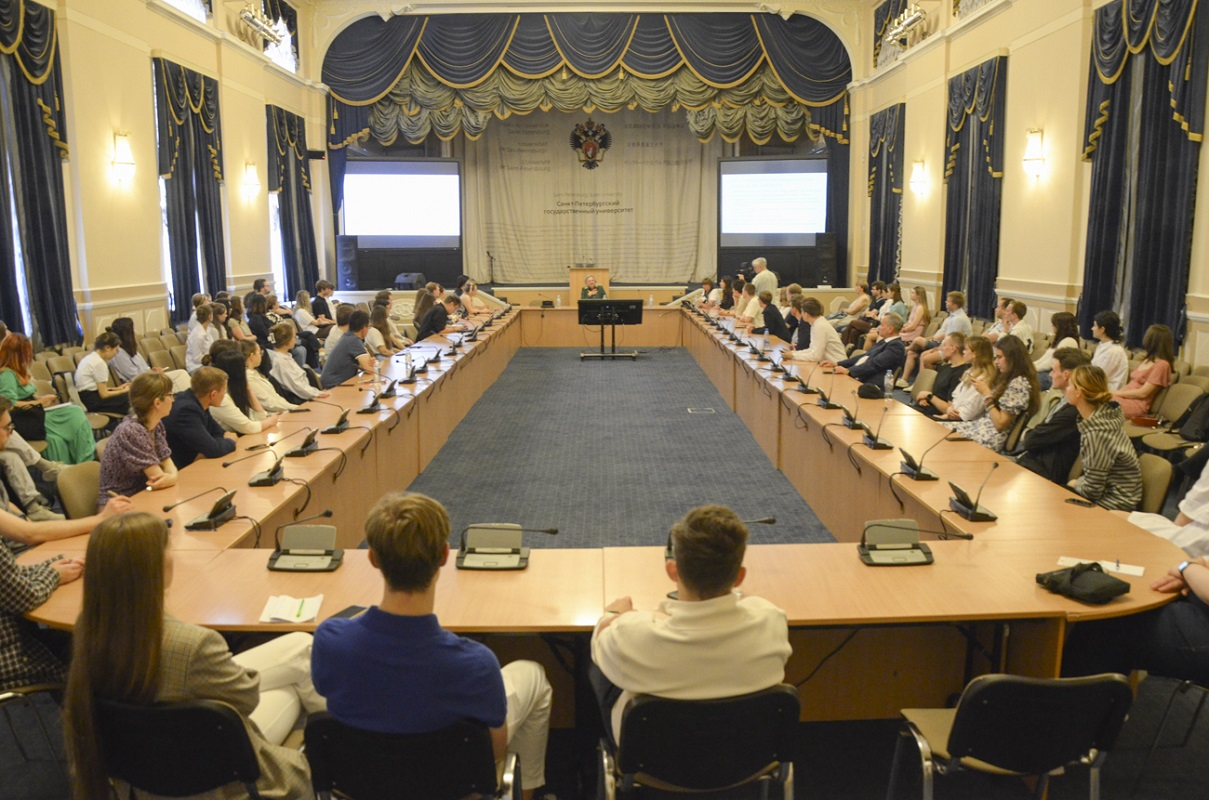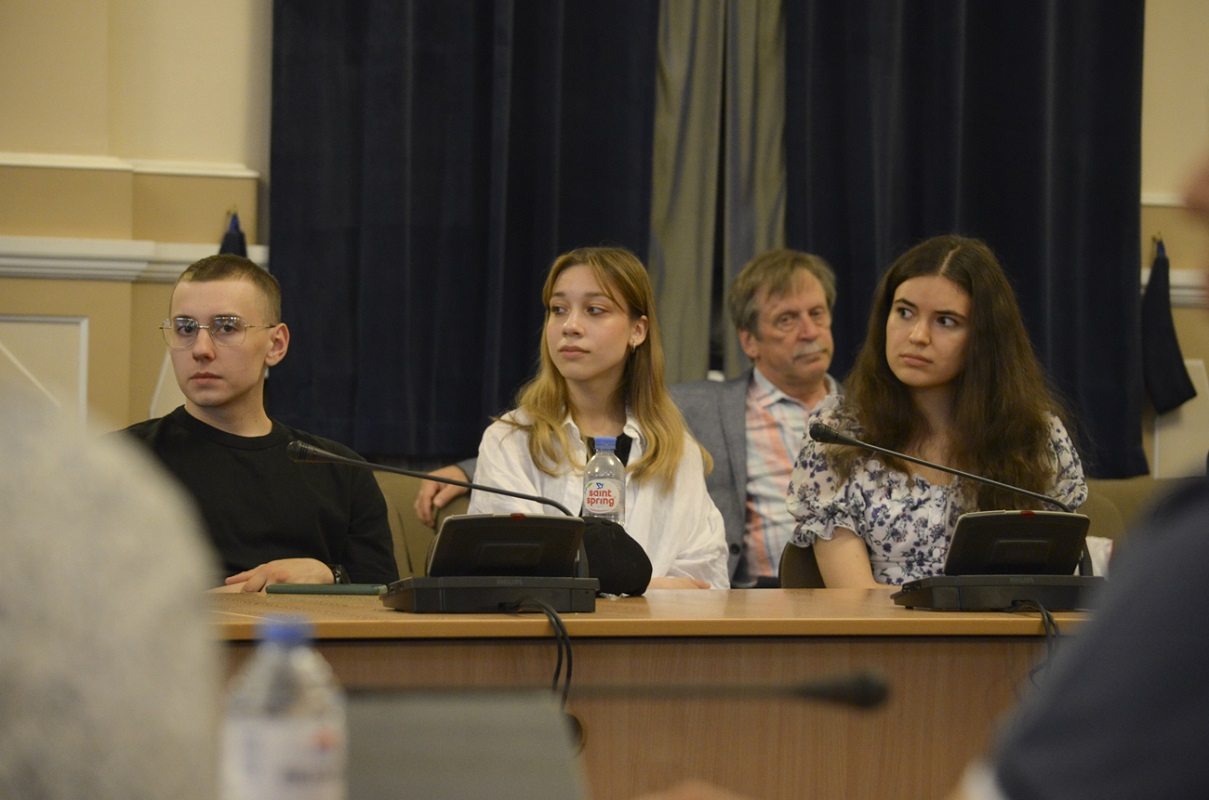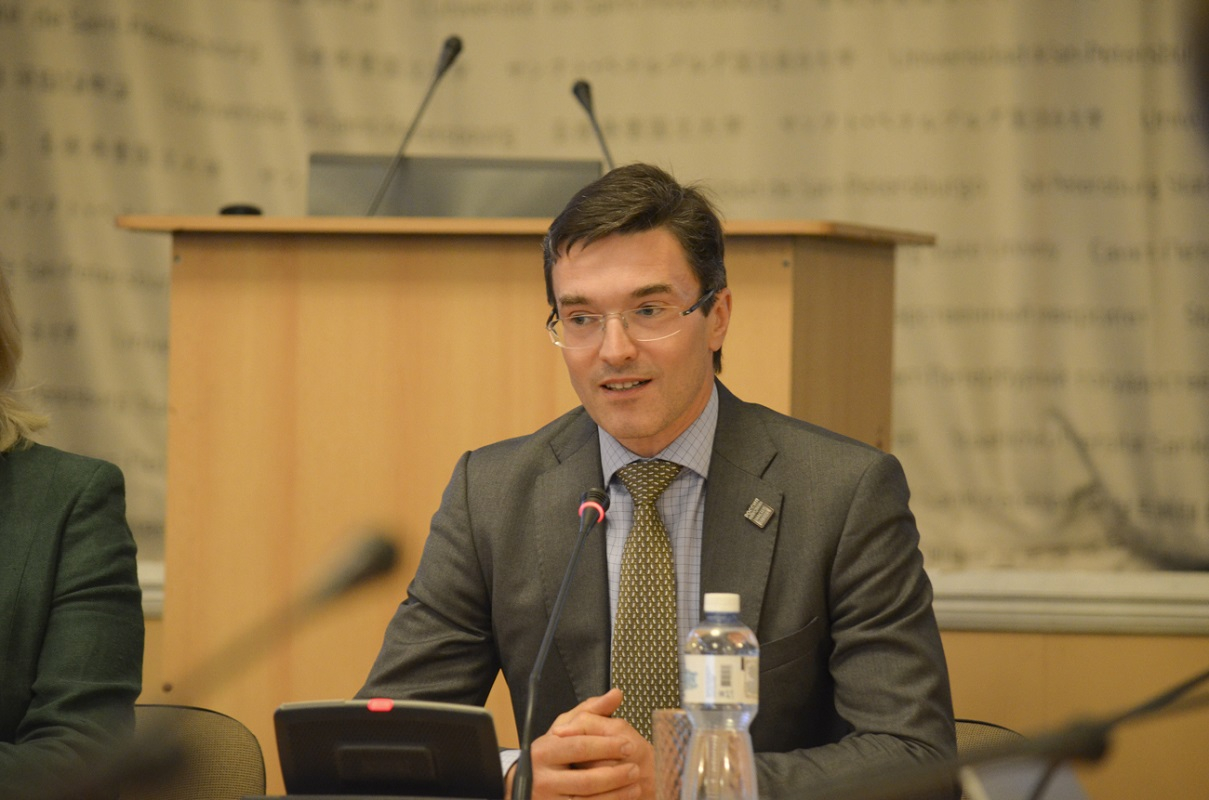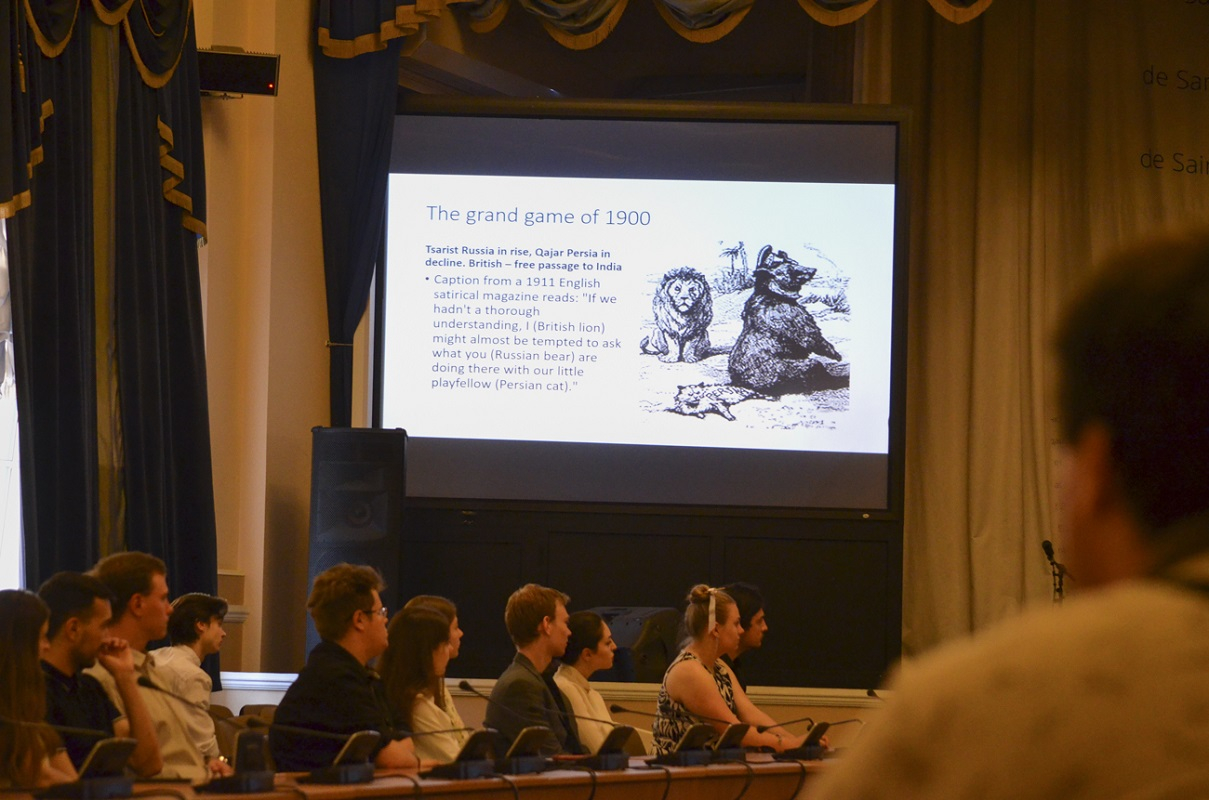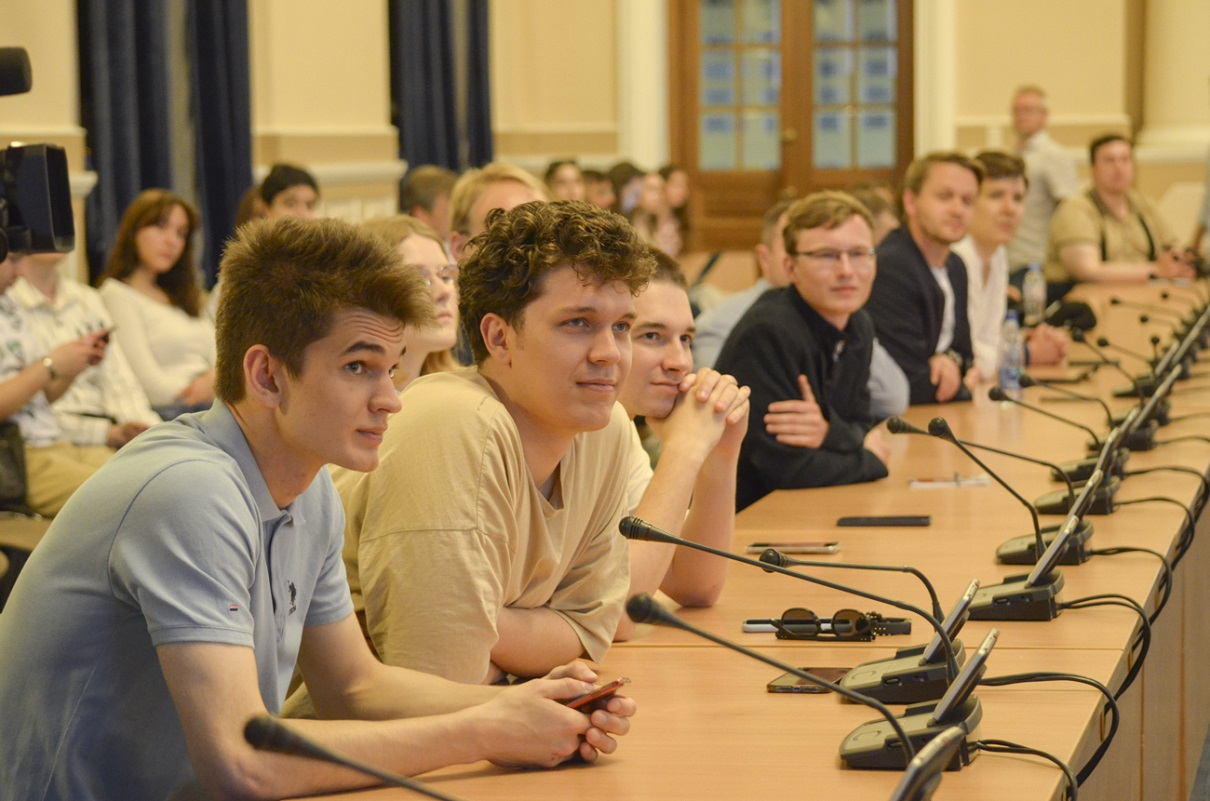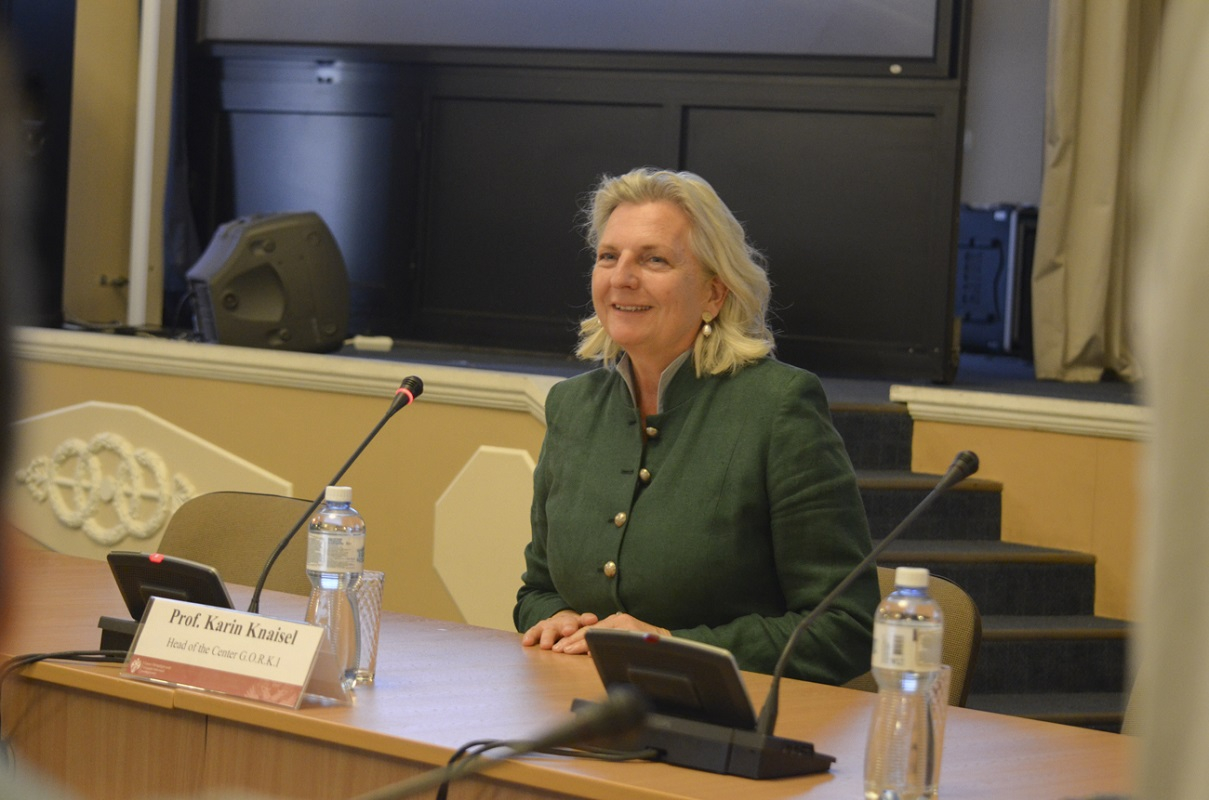Former Minister of Foreign Affairs of the Republic of Austria Karin Kneissl delivers a lecture to St Petersburg University students
During the St Petersburg International Economic Forum (SPIEF) 2023, St Petersburg University hosted the lecture "Return of Geography and History". It was delivered by Karin Kneissl, Head of the Centre "Geopolitical Observatory for Russia’s Key Issues" (GORKI) at St Petersburg University, Energy Expert, academic and former Minister of European and International Affairs of the Republic of Austria.
Geopolitics as an academic discipline related to political science emerged at the very beginning of the 20th century. It began with a paper by British geographer and Oxford University professor Sir Halford John Mackinder. In his paper presented at the Royal Geographical Society, Mackinder formulated the so-called Heartland theory that recognises the strategic importance of the states situated in the central part of Eurasia — the Heartland, while the rest of the world remains on the periphery.
Later, the world was confronted with geographical determinism, racial theory and social Darwinism, described by the German general, geographer and politician Karl Haushofer, who influenced the development of Germany’s expansionist policies. After World War II, New Great Game theory emerged in geopolitics, with many states focusing on oil extraction and provision of energy needs. Then, the movement to the West began, with so-called think tanks having emerged in the United States, shaping the legal culture and influencing politics.
Ms Karin Kneissl noted that political and economic systems can, indeed, change rapidly — many revolutions are clear examples of this, while geography and demography remain unchanged.
The 2010s were marked by China’s Belt and Road Initiative, a massive infrastructure project seeking to create new trade routes, transport and economic corridors connecting over 60 countries in Central Asia, Europe and Africa to China. ‘For over two decades, pipelines and airlines have been turning to the East,’ said Karin Kneissl.
Russia’s trade and political relations with its largest neighbour are growing stronger and stronger. China and Russia share a 4,300-km border. In 2001, the two states signed a Treaty of Good Neighbourliness and Friendly Cooperation, which was extended for another five years in 2021. Since 2013, 40 bilateral meetings have been held between Russian President Vladimir Putin and Chinese leader Xí Jìnpíng. In 2022, Russia was China’s largest supplier of oil, the second largest supplier of piped gas and the fourth largest supplier of liquefied natural gas. Last September, Beijing and Moscow agreed to pay for Russian gas supplies to China in roubles and yuan instead of US dollars in an effort to protect their economies from Western pressure.
Such powerful alliances inevitably lead to a decentralisation of power in global governance. And according to Ms Kneissl, military conflicts in Syria, Iraq and the start of a special military operation in Ukraine accelerated the shifts in geopolitical tectonic plates.
There has been also a shift in priorities and approaches — international legal mechanisms have been superseded by sanctions pressure. It has become clear that today, we are witnessing not just confrontations between states, but a clash of civilisations, based on theological disputes, financial market issues, political influence, and the issue of energy crises. ‘Indeed, some can print money, but no one can print energy,’ noted Karin Kneissl.
The day before, Ms Kneissl spoke to students majoring in German philology and economics.
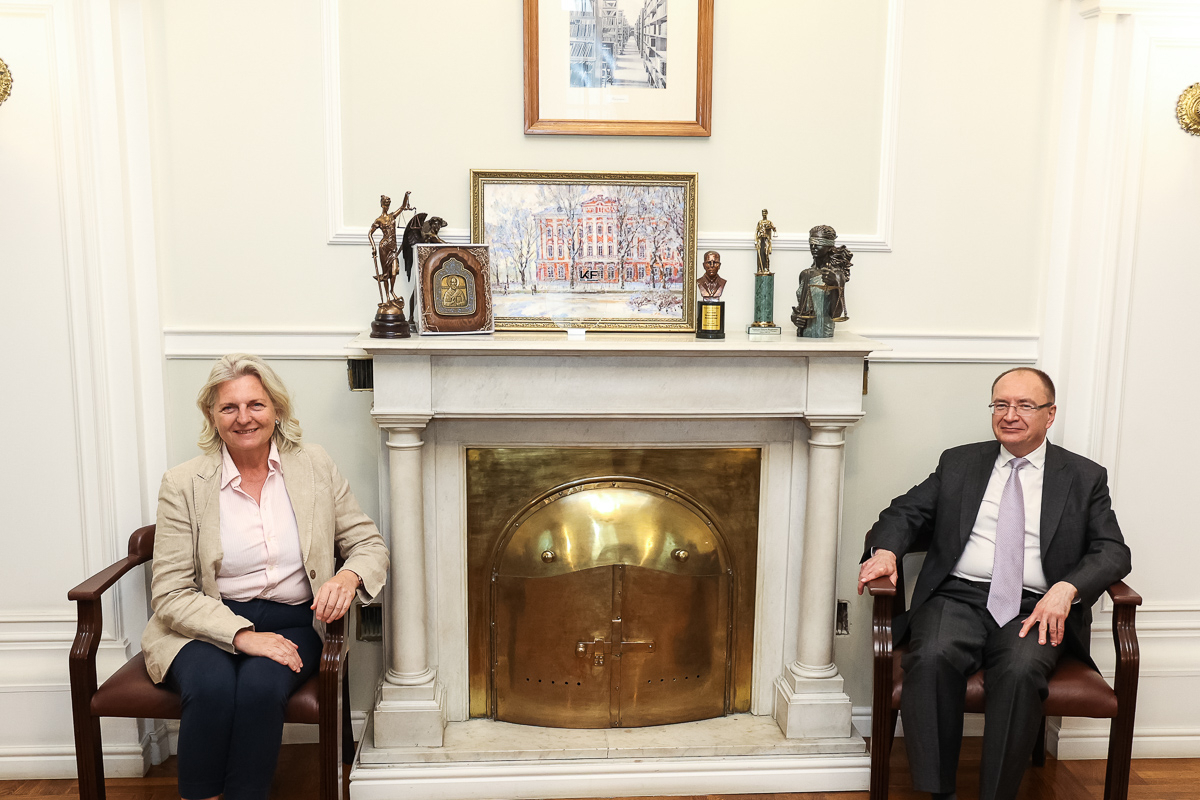
Karin Kneissl also met with Nikolay Kropachev, Rector of St Petersburg University, Corresponding Member of the Russian Academy of Sciences. They discussed the future projects of the GORKI Centre at St Petersburg University. The Centre will conduct continuous monitoring and analyses of the key geopolitical, external economic and socio-economic issues affecting the development of Russia, and share the research findings with the public and authorities.
Experts of the GORKI Centre will address the issues of Russia’s economic development; its energy independence; migration and demographic development; as well as different aspects of the country’s proactive and far-sighted diplomacy and foreign policy. The GORKI Centre’s research draws on the research potential of an interdisciplinary team of St Petersburg University experts and the professional experience of Karin Kneissl, Energy Expert, former Minister of European and International Affairs of the Republic of Austria.


